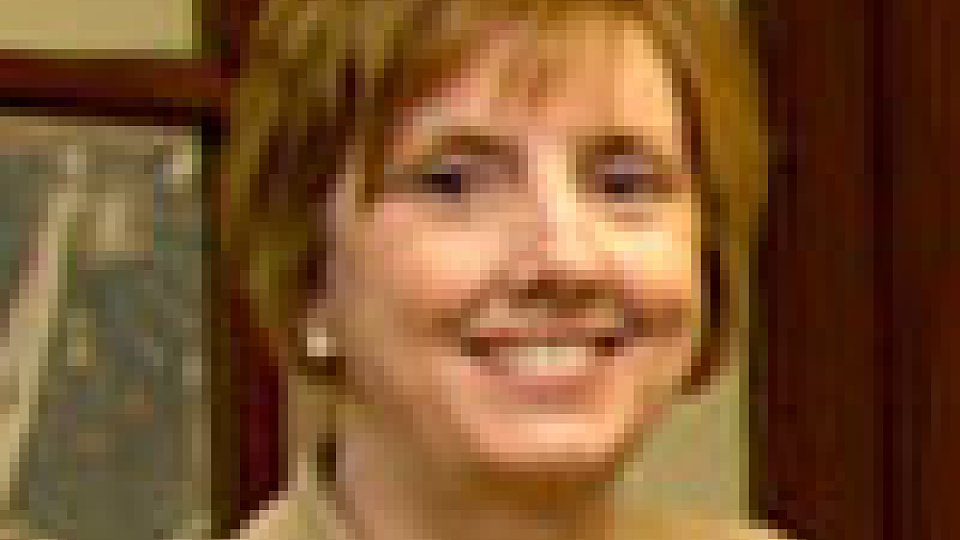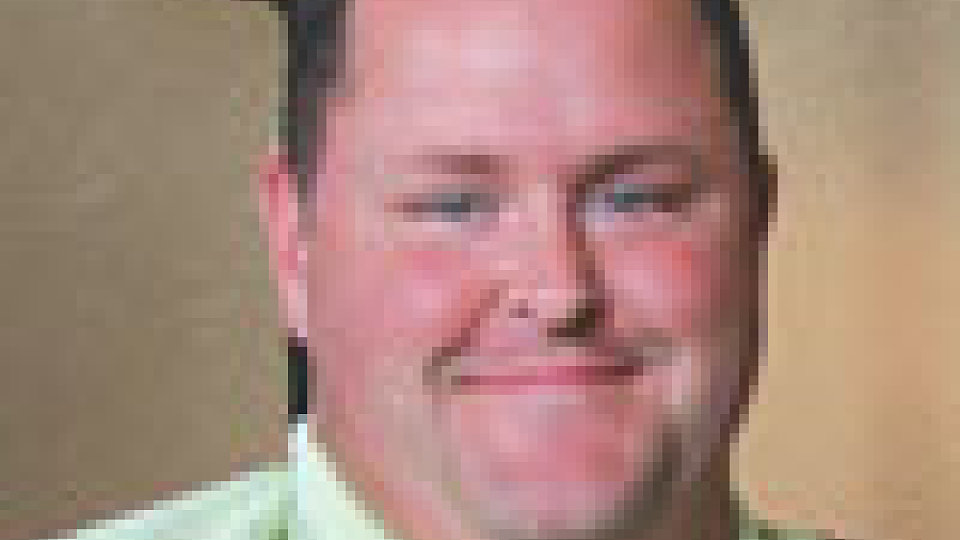The state of foster care from a roundtable of experts
Why is foster care important? What is the Church's role? What are the common misconceptions about foster children and how to parent them? We sat down with our experts and picked their brains about the state of foster care today. You might be surprised and encouraged by what they have to say.
Before we dive in, meet our panel of foster care experts:
[hcolumns]
[columnhelper span6]
Andi Lawrence is the foster care and adoption director for Buckner in North Texas.
[columnhelper span6]
Debbie Sceroler is the foster care and adoption director in Longview, Texas.
[/hcolumns]
[hcolumns]
[columnhelper span6]
Mindy McDonald is the foster care director for Buckner in Lubbock, Texas.
[columnhelper span6]
Kathy McGee is the administrator for Buckner West Texas programs (Lubbock and Amarillo). She previously served as the foster care director in Lubbock.
[/hcolumns]
[hcolumns]
[columnhelper span6]
Bruce and Denise Kendrick lead Embrace Texas. They have nine children ages one to 21. Five are adopted, four of whom were adopted through the Buckner foster-to-adopt program.
[columnhelper span6]
David Ummel is the administer for Buckner in Northeast Texas.
[/hcolumns]
What are the misconceptions about foster care?
Andi Lawrence: There are so many different misconceptions about foster care. I hear frequently about the child’s unmanageable behaviors and that the “State” has taken away all discipline techniques. We teach our families children do have challenging behaviors and we provide them with some innovative parenting methods that are effective with children who have been traumatized through abuse and neglect. The other misconception: “I can’t love a child and then let them go home to the family that abused them.” Sadness is expected when a child returns home to their parents or family member. Our families’ emotions are real. During this time, we are praying with you that the child’s future is safe and that we will trust God and His plan for the child’s life.
Debbie Sceroler: For new, inexperienced foster parents, a major misconception is that “they can fix the child by just loving them and giving them things.” In spite of extensive training, they fail to recognize and understand the special needs of children who have been victimized from abuse and neglect.
Who are the foster parents Buckner needs?
Mindy McDonald: We need you. It doesn’t require perfect people in perfect situations to foster children. In fact, perfect people need not apply, because raising children is a daunting task, but raising someone else’s children takes patience and commitment. It takes imperfect people with a desire and a heart to serve children in need. Whether you have a bed for one child or many children, we need you. If you can help even one child through foster care or adoption, you have helped many. It is a ripple effect and it truly takes a community of committed individuals to see these young lives achieve permanency. That’s what we are at Buckner. A family. A team. A community of individuals who want to make a difference in the lives of the vulnerable. If you have space in your home, in your heart, and in your life for children in need, you are exactly who we need.
Sceroler: Buckner needs foster parents who are willing to provide care for older children, sibling groups and minority children. We need foster and adoptive parents who see this as a redemptive ministry and who invest their lives in truly making an eternal difference in the lives of children.
What do you see at your job?
Kathy McGee: On a daily basis, I have the opportunity to see dedicated, passionate foster care staff and committed foster parents serving children in need. Children come to us at different ages with various needs, but they all have in common the need to feel safe, secure and loved. Children are removed from their homes for various reasons, from neglectful supervision to severe physical and sexual abuse. Over the last few years, the majority of the children we see are coming from a situation that involves substance abuse and/or domestic violence.
Children have various reactions to removal due to their personality and previous experiences, but all children show fear of the unknown on their faces. They lose all they have when they are removed from their home: their family, their home, the friends and most of their personal belongings. A lot of the children who come to us have never experienced the true love of God or been exposed to Christian principles. Through staff and foster parents, I believe Buckner begins the healing process by showing these children unconditional love and acceptance.
What is the Church’s responsibility when it comes to foster care (the Church being the body of Christ)? How should the Church step up?
Bruce Kendrick: In general, the Church is responsible to seek justice, defend the oppressed, take up the cause of the fatherless and plead the case of the widow (Isaiah 1:17). There are a number of other biblical references to the Church's responsibilities to the poor or outcast as well but the prophet's words to God's people in Israel are a good summation. For us, foster care is an intersection of all those things because we rarely have children without a safe, nurturing home when justice is served, oppression is expelled and widows are cared for. The Church can do any number of things from recruiting foster and adoptive families to mentoring children aging out of foster care at 18 when they haven't been adopted. What the Church can't do is outsource this responsibility to the government, a foster care agency or a non-profit organization.
What does foster care look like in Texas? Where are we headed?
McGee: Foster care in Texas is ever-changing and somewhat inconsistent from region to region. In the past few years, there has been a big emphasis on preparing youth who are aging out of care to be successful and healthy adults. Currently, Texas is experimenting with a foster care redesign, where they’ve made one agency responsible for placing all children with other agencies. There is a pilot project in a rural area and an urban area. I believe the future will see child placing agencies more involved in determining permanency for the children placed with them and have increased responsibility for working with families regarding prevention and reunification.
Why are you passionate about foster care?
David Ummel: Because it is exactly where God has called His people to be. God’s Word is full of examples, from the parable of the Good Samaritan to the parable of the sheep and goats in Matthew 25, where we are shown our present responsibility to make an immediate impact in the lives of those around us who are hurting. Where better to put those words in action than in foster care? Children in foster care did not get there by choice. They are there because the adults in their lives have failed them, and they are in need of Godly adults to step up and stand in the gap on their behalf.
Kendrick: Initially, we were not passionate. We just had space in our home, realized there was a need and felt the Bible set a precedent for our faith in caring for the fatherless. It wasn't until these children were in our home, and we began to see the depth of their trauma and the difficulty in helping them heal, that we became passionate. Our passion was awakened primarily because we saw ourselves in our relationship with God in the same ways these children related to us. We never saw ourselves in God's place, but they were starved for unconditional affection, desperately seeking it in any way they could think of and only finding glimpses of the healing they needed in a family that loves Christ.
If you think of the call in James 1:27, to minister to orphans and widows in their distress, who are the “orphans” in the U.S.?
Kendrick: They are the 125,000 children waiting for adoption. There are more than 400,000 children in foster care in the U.S., and our hope as a family and a ministry is to see those children who can be reunified with their parents to go back home where their parents have been loved by their children's foster parents, connected to a local church and encouraged as they re-establish their family. But for the 125,000 … They have no family.
What kind of hope is there for children who are in foster care?
McDonald: Hope is believing in the light even in the dark. To me, it is believing in better days, even in your worst. Children in foster care get to experience the ultimate hope. Hope for a restored family, hope for better days, hope for a brighter future. They see God’s love and His grace in action every day as they journey through foster care, whether it is for a season or a lifetime.
Lawrence: The statistics regarding children coming into foster care or aging out of foster care are staggering and depressive. However, the hope children have while they are in foster care comes from our foster parents. They help the children process their fear associated with their abuse/neglect history as well as the unknown in their life. The parents are used by God as a comforter to the children during this period in their life.
What makes Buckner foster care unique?
Kendrick: Buckner is unique because they provide the professional side of foster care that is necessary to keep children safe and maintain a Biblical standard of care for children while emphasizing their partnership with the local Church. This is done not only in identifying Christian foster and adoptive families, but in supporting those families, and providing avenues for other believers to serve in meaningful ways in order for the Church to reclaim the care of orphans and waiting children.
What else should people know about being a foster parent or foster child?
McDonald: Foster care is the most rewarding yet most difficult thing you will ever do. I admire the families who willingly open their homes and their hearts to children in need. I promise you, it’s worth the ride. You will never be the same. Our theme in Lubbock is, “even super heroes had foster parents.” Think about that! Think about Superman, Batman, Wolverine and Spiderman … all of them grew up in some sort of substitute care. Just think, you could be raising the next superhero.
Lawrence: Children come into foster care with an enormous amount of loss. Some have lost their innocence. They have lost their parents. Some lost contact with their siblings. They have lost their grandparents. They have lost their teachers, friends, neighbors, dogs, cats, etc. They come to the foster homes not having their “lovies.” Not having their teddy bears. Not having their good luck shirt. This is why we desire families who are motivated by their faith. Foster families need to understand how God is our refuge and strength as they help a child process their enormous amount of loss.
To learn more about foster care and ways you can be a family for a vulnerable child, visit www.beafamily.org.












Add a Comment